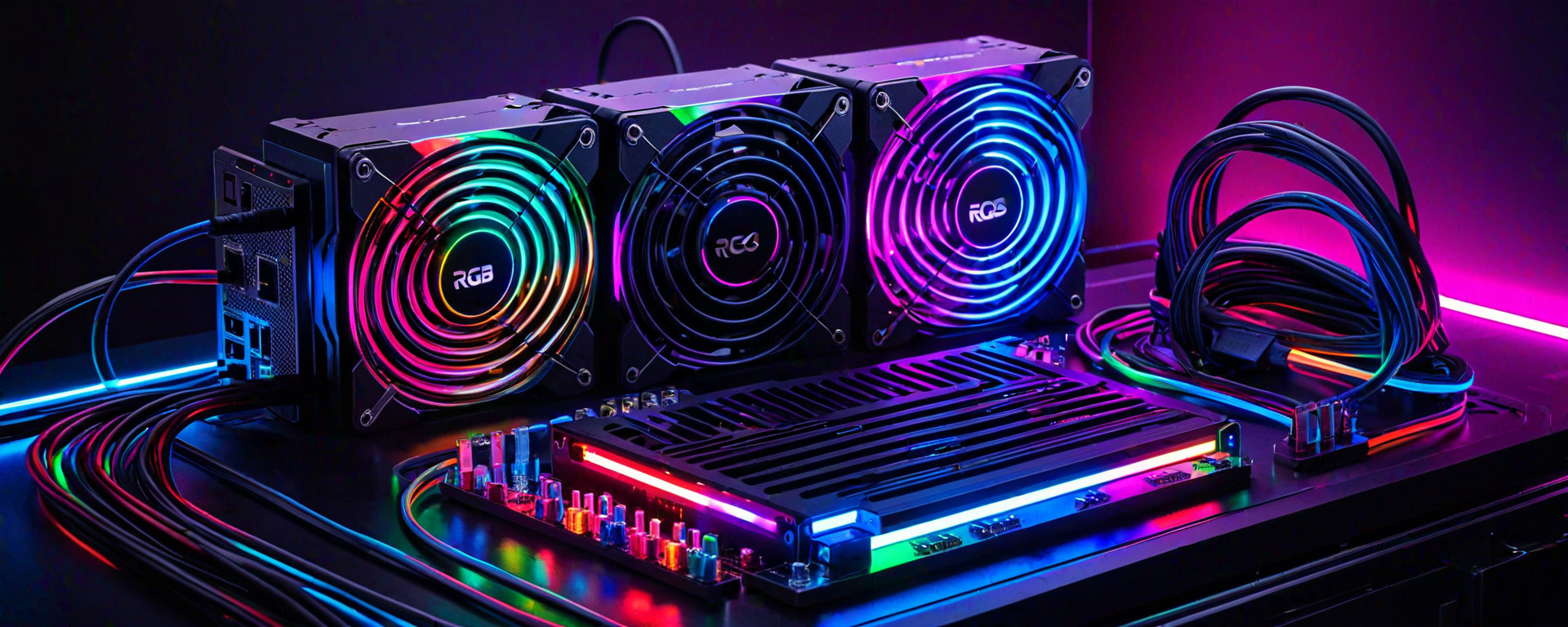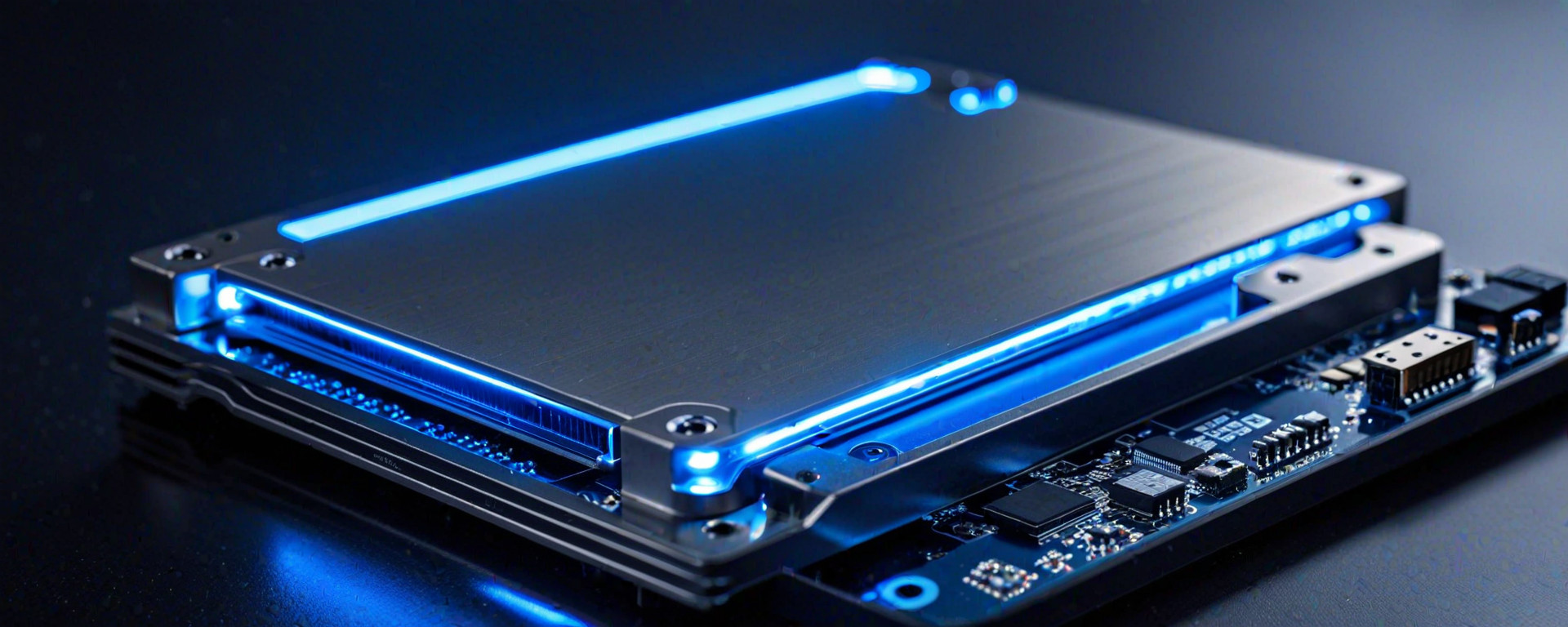Introduction
When building a computer system, one of the critical components that often gets overlooked but plays an essential role in overall performance and aesthetics is the power supply unit (PSU). Two types dominate the market today—modular and non-modular PSUs. While both serve the same basic function of converting electrical energy from your wall outlet into usable power for your computer's components, they differ significantly in how they handle cables and their impact on system performance.
The importance of cable management cannot be overstated in a modern build, as it affects not only the aesthetics but also crucial aspects like airflow and heat dissipation. Cable clutter can obstruct air flow paths, leading to higher internal temperatures, which can degrade system performance and potentially reduce the lifespan of components. Therefore, choosing between modular and non-modular PSUs is an important decision that requires careful consideration.
This article delves into the intricacies of both types of power supplies, comparing their pros and cons in terms of cable management, ease of installation, performance, cost-effectiveness, and maintenance. By providing detailed comparisons with specific products, technical specifications, real-world usage scenarios, and comprehensive FAQs, readers will be well-equipped to make an informed decision that best suits their needs.
Understanding Modular Power Supplies
Description and Advantages of Modular PSUs
A modular power supply allows users to connect only the cables they need for their specific setup. This means that unused cables can be left disconnected, significantly reducing cable clutter inside a computer case. The primary advantages of modular PSUs include:
- Enhanced Aesthetics and Cleanliness: With fewer loose cables in the chassis, the internal appearance is neater.
- Better Airflow: Less clutter means less obstruction for airflow paths, leading to improved cooling efficiency.
- Easier Upgrades: Adding or removing components becomes much simpler as users can connect only necessary cables.
Technical Specifications and Performance Metrics
Modular PSUs come in different configurations depending on the number of connectors available. Common types include fully modular, semi-modular, and cable management modules:
- Fully Modular: All cables are detachable.
- Semi-Modular: Essential power cables (24-pin motherboard connector) remain permanently attached; other connectors are modular.
- Cable Management Modules: Pre-installed cable bundles for specific build configurations.
In terms of performance, many high-end fully modular PSUs offer excellent efficiency ratings such as 80 Plus Gold or Platinum. They typically feature robust designs with heavy-duty cables and connectors to ensure reliability over long-term use.
Understanding Non-Modular Power Supplies
Description and Advantages of Non-Modular PSUs
A non-modular power supply comes with all its cables permanently attached. This means that every cable must be managed or left in place within the computer case, regardless of whether it is used.
- Cost-Effective: Non-modular PSUs are generally less expensive than their modular counterparts due to simpler manufacturing processes.
- Simplified Installation: With all cables pre-connected and fixed in place, installation can be straightforward for users who prefer a plug-and-play approach.
Technical Specifications and Performance MetricsNon-modular PSUs are often found in lower to mid-range configurations with efficiency ratings such as 80 Plus Bronze or Silver. While they may not offer the same level of performance as high-end fully modular units, their reliability is generally satisfactory for most users.
Cable Management and Ease of Installation
The primary distinction between modular and non-modular PSUs lies in cable management capabilities:
- Modular PSUs: Users can choose which cables to connect, making it easier to achieve a clean build. This also simplifies upgrades or changes in system configuration.
- Non-Modular PSUs: All cables are fixed, requiring careful cable routing and management during installation. Unused cables add bulk and may hinder airflow if not properly managed.
Performance and Reliability Considerations
Both modular and non-modular PSUs can offer reliable performance depending on the quality of their components:
- Modular Units: Often feature higher efficiency ratings, robust build quality, and advanced cooling systems to ensure long-term reliability.
- Non-Modular Units: Typically more affordable but may lack some of the high-end features found in modular units. However, many non-modular PSUs still offer good performance for everyday use.
Cost-Effectiveness and Long-Term Value
The cost-effectiveness of a PSU depends on its intended usage:
- Modular Units: While more expensive upfront, modular PSUs can offer better long-term value due to their ease of upgrades and potential for improved performance.
- Non-Modular Units: Offer immediate cost savings but may require additional investment in cable management tools or future PSU replacements if the build evolves over time.
Detailed Comparisons with Alternative Products
To provide a comprehensive comparison, we will look at specific models from leading manufacturers:
| Product Name | Type | Efficiency Rating | Cable Management | Price Range (USD) | Performance Metrics |
|---|---|---|---|---|---|
| Seasonic Focus Gold Plus 850W | Fully Modular | 80 Plus Gold | Detachable Cables | $179-$249 | High efficiency, robust build quality, advanced cooling system. |
| Corsair RMx Series 850W | Fully Modular | 80 Plus Gold | Detachable Cables | $169-$239 | Solid performance, excellent cable routing options. |
| Cooler Master MWE Gold 850W | Fully Modular | 80 Plus Gold | Detachable Cables | $139-$179 | Affordable, reliable, and efficient. |
| Corsair CX650M 650W | Semi-Modular | 80 Plus Gold | Fully Attached Power Cables | $79-$129 | Budget-friendly, easy to install, good for compact builds. |
| American Megatrends AX 850 Platinum | Fully Modular | 80 Plus Platinum | Detachable Cables | $329-$479 | Top-tier efficiency, premium build quality. |
User Feedback and Recommendations
User reviews suggest that:
- Modular Units: Highly recommended for advanced users or those who frequently upgrade their systems. They provide flexibility in cable management, which is crucial for neat builds.
- Non-Modular Units: Suitable for budget-conscious users or those building a system that will remain largely unchanged over time. The simplicity of installation and lower cost make them an attractive option.
Conclusion
The choice between modular and non-modular power supplies ultimately depends on individual needs, preferences, and long-term plans for the build:
- Modular PSUs: Offer superior flexibility, ease of upgrades, and often better performance metrics. Ideal for enthusiasts or those looking to maximize their investment over time.
- Non-Modular PSUs: Provide immediate cost savings and simplicity in installation. Suitable for users who prioritize budget constraints without significant future changes planned.
In summary, while non-modular units may seem more appealing due to lower upfront costs, modular PSUs often provide better long-term value through enhanced performance and ease of use over time.








